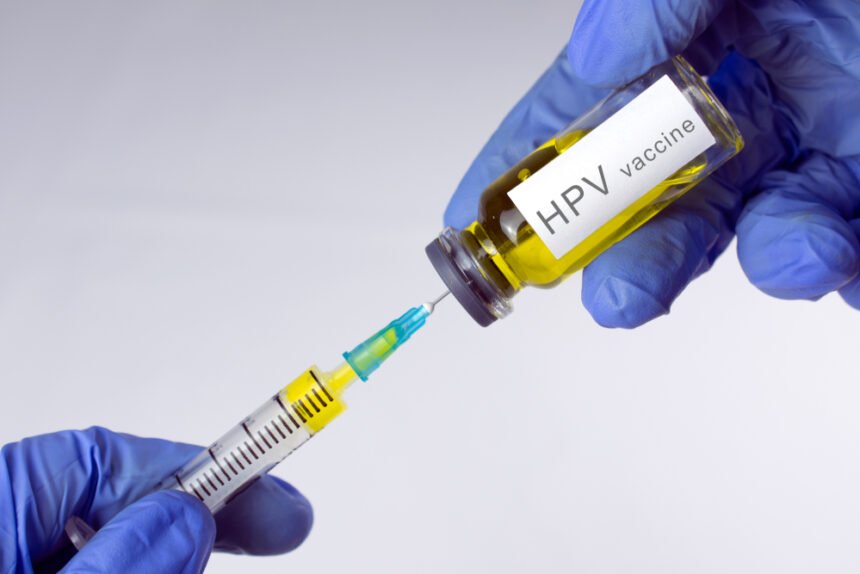Cervical cancer is a growing problem in many countries. Although it is declining in the United States, it is still an issue that needs to be addressed. Fortunately, free HPV vaccines can take the edge off the problem.
HPV Vaccines Are Addressing the Growing Risk of Cervical Cancer
The rate of cervical cancer in the United States is fortunately not very high. It is only 8.1 out of every 100,000 women. This is largely due to the HPV vaccine, which reduces the risk of this horrible disease. Gardisil 9 is free for young women who become infected with the human papillomavirus or HPV. According to a Norwegian study, 45% of all women that were 21 years old had a continuous HPV infection. This can create a real epidemic, since young people are far more sexually active these days. Women having sex regularly will spread HPV, even though the person who gets it might show the common STD symptoms associated with the disease. The vaccine works whether you have had o no sexual partners or multiple sexual partners. Vaccines are three doses given over a period that spans six to twelve months. There are currently over three dozen different strains of HPV that can cause cancer and are also spread through sexual activity. Around 80 million Americans are infected with genital HPV. The CDC estimates that 14 million people are newly infected every year. Getting a vaccine is one of the best preventative measures. HPV is responsible for all cervical cancer cases. The strains 16 and 18 are the worst. These strands alone account for seven out of ten cervical cancer cases. Although cervical cancer is a bigger problem in developing countries, it is also a huge concern in the United States. According to data between the years 1999 and 2015, the prevalence of cervical cancer declined by 1.6% annually. The decline started in the 1950s when annual cervical cancer screenings became mandatory. Half of cervical cancer cases are detected in women who do not frequently get screened. Cervical cancer is the 2nd leading cause of death for women around the world. HPV also causes vaginal and vulvar cancers in women with other types of cancer cropping up in both men and women. A vaccine for HPV is a preventative measure meant to attempt to control the spread of HPV, which can cause genital warts that then turns into a cancerous lesion. Vaccines offer coverage against a number of HPV types that are related to various types of cancers including but not limited to infections. The brand names of the most commonly available vaccines are Gardasil, which helps fight and prevent cervical, vulvar, vaginal and anal cancer as well as genital warts. Gardisil 9 is for the prevention of cervical, vulvar, vaginal, and anal cancer and genital warts, while Ceravix, which is only recommended for girls and used for the prevention of cervical cancer. Each vaccine comes in three doses administered over 6 months and the vaccine is shown as safe. The vaccine works best if an individual gets it before they start having sex. Planned Parenthood Centers are one way to get the HPV vaccine in Texas. Some programs help people without insurance to get HPV vaccine with or without cost although pregnant women should not get this vaccine. The vaccine protects against two HPV strains because if a person is infected with one of the strains the vaccine can still protect them from the other. Infection with HPV can lead to cervical cancer in the long-term that develops over the course of about 10-30 years. HPV causes the 8,580 annual cases of anal cancer in the U.S. with most of the cases being women. If a woman has a suppressed immune system this is a possible way to get anal cancer. Although, when it comes to men, getting this vaccine is recommended for men who have sex with other men if they have not been previously vaccinated. These recommendations are set up to promote immunization projects and if a person is already infected, the vaccine can contain the infections’ spread. The virus that causes genital warts can cause cancer as we already covered. Cases of HPV cancers genital warts have dropped 86%.
HPV Vaccine is Key to Fighting Cervical Cancer
This vaccine has side effects, however, as most do. These side effects are pain or swelling in the arm that has been injected, and dizziness, or fainting after any vaccine, which is more common among adolescents. The other side effects are nausea, and headache despite the vaccine being useful.

